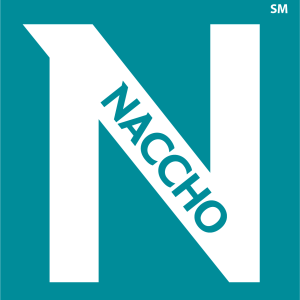Deadline Extended: Applications are now due Monday, February 21, 2022, at 11:59 PM PST.
In 2017, NACCHO assessed vector control programs across the United States and found that 84% of surveyed vector control programs needed improvement related to one or more core vector control and surveillance capabilities. The ten capabilities are as follows:
Core Capabilities
- Capability 1: Routine mosquito surveillance through standardized trapping and species identification;
- Capability 2: Treatment decisions using surveillance data;
- Capability 3: Larviciding, adulticiding, or both;
- Capability 4: Routine vector control activities (e.g., chemical, biological, source reduction, or environmental management);
- Capability 5: Pesticide resistance testing;
Supplemental Capabilities
- Capability 6: Licensed pesticide application;
- Capability 7: Vector control activities other than chemical control (e.g., biological source reduction or water management);
- Capability 8: Community outreach and education campaigns regarding mosquito-borne diseases, how they spread, and how to prevent infection;
- Capability 9: Regular communication with local health departments regarding surveillance and epidemiology; and
- Capability 10: Outreach (e.g., communication and/or cooperation) with nearby vector control programs.
The results of the 2017 assessment and lessons learned from responses such as the Zika virus epidemic indicated a need for further programmatic and educational support for vector control programs nationwide. A follow-up assessment in 2020 showed preliminary results that indicate improvement across the field, but it also showed that a substantial percentage of programs still do not have the capacity for the five core capabilities, with a notable gap in terms of capacity for pesticide resistance testing.
The Vector Control Collaborative Mentorship Program
NACCHO and the Centers for Disease Control and Prevention (CDC) established the Vector Control Collaborative (VCC) to match local vector control programs with demonstrated expertise in the ten capabilities with vector control programs currently looking for guidance, tools and resources, and recommendations to build program capability.
Since inception of the VCC in 2018, NACCHO has funded 14 local vector control organizations across five states to provide technical assistance or receive peer-to-peer mentorship with the aim of increasing program proficiency in vector surveillance and control.
Applications are still being accepted for the 2022 VCC Cohort!
Selected programs will be awarded up to $10,000 in grant funding. NACCHO will issue four awards for the 2022 VCC Cohort, with a goal of creating two mentor-mentee pairs.
- Click here to view the Request for Applications (PDF)
- Note: Refer to NACCHO’s newly-updated Travel Policy for the calendar year 2022 for the latest guidance. You can download the Travel Expense Form for 2022 here.
- Click here to download the application form (Word)
Applicants must submit their completed application via email to [email protected] by 11:59 PM PST, Monday, February 21, 2022. Applications open until mentor/mentee spots are filled or the deadline has passed ──whichever comes first ─── thus early submission of applications is strongly encouraged. Late applications will not be accepted.
Participants in the 2022 VCC Cohort will be provided with a mentor who will visit their local program to provide on-site technical assistance in vector surveillance and control (all travel is subject to local or federal COVID-19 safety procedures). Selected programs will also be awarded funds to visit their mentor’s site and shadow their program.
For questions on the Vector Control Collaborative or the program application, please contact Angana Roy ([email protected]).







